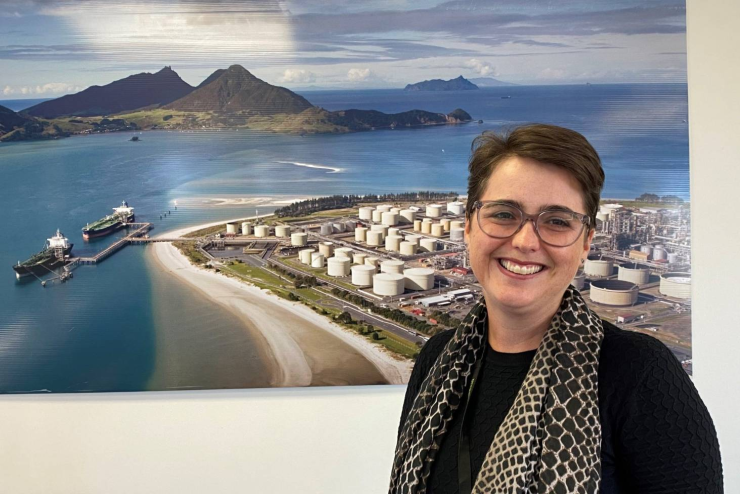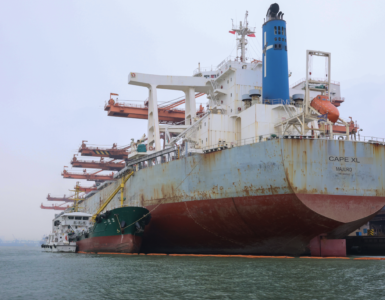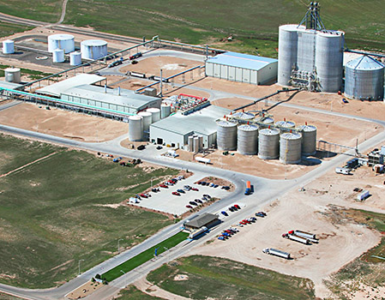New Zealand – Marsden Point role in generational leap to biofuels.
The Government’s biofuel mandate will require Marsden Point’s big oil tanks and Auckland pipeline – and that means it will be more efficient to go straight to high-tech second-generation biofuels.
New Zealand’s only refinery stopped processing crude oil last week – and now its owner Channel Infrastructure confirms it won’t run first-generation biofuels like ethanol and biodiesel down its pipe either.
That will force the Government’s hand this year as it decides the final shape of the biofuels mandate for the country’s cars, trucks, trains and ships.
🔥 What about we co-host a webinar? Let's educate, captivate, and convert the biofuels economy!
Biofuels Central is the global go-to online magazine for the biofuel market, we can help you host impactful webinars that become a global reference on your topic and are an evergreen source of leads. Click here to request more details
With the transition from refinery to import terminal, the company’s Scope 1 and 2 direct emissions reduce significantly by about 1 million tonnes of CO2 a year – more than 1 percent of New Zealand’s greenhouse gas emissions.
But while that may be removed from New Zealand’s ledgers, contributing about a third of the country’s first five-year Emissions Reduction Plan, that is somewhat deceptive. The crude oil will instead be refined in Asia, causing emissions elsewhere, then imported and burned here – again emitting carbon dioxide.
Channel Infrastructure is the company formerly known as Refining NZ, until its board, shareholders and the major fuel companies that own it agreed to shut down its refinery and lay off most of its staff.
Coming into effect at the same time as the oil and gas crisis caused by Russia’s invasion of Ukraine, the closure has sparked concern about New Zealand’s fuel security.
Chief executive Naomi James said this country had always relied on imports for its fuel supply, but anticipated a reduction in fuel stocks here as the crude previously stored at Marsden Point to feed the refinery was no longer there.
The company supported Government moves to increase the minimum refined oil stocks held here, and stood ready to support that with its Marsden Point storage tanks.
With the shift of refining offshore, the potential opened up to source New Zealand’s fuel from much larger, modern refineries with lower energy intensity.
Naomi James, Chief executive, said:
We believe this will open up more options for our customers, the fuel companies, to pursue opportunities to reduce emissions across the supply chain, right through the chain from the source of fuel to shipping to New Zealand.
The company will no longer use any gas, and its electricity demand will reduce by 85 percent – easing pressure on North Island generation capacity such as the coal-burning Huntly power plant.
But James acknowledged the big unanswered questions around reducing Scope 3 emissions – the fuels burned by the transport companies and motorists further down the value chain.
This week, just days after shutting down its refinery, the company published its first sustainability report, Our Transition for a Sustainable Future. It outlines the perceived opportunities and risks in the energy transition that is taking place in New Zealand, and its plans to cut emissions.
Scope 1 covers direct emissions from owned or controlled sources. Scope 2 covers indirect emissions from the generation of purchased electricity, steam, heating and cooling consumed by the reporting company. Scope 3 includes all other indirect emissions that occur in a company’s value chain.
The report says with the end to the energy intensive refining processes that made the company one of New Zealand’s biggest emitters, its most significant remaining emissions come primarily from electricity consumption. Reducing those are a priority – and it’s building a 31ha solar farm to supply 26.7mw or about 10 percent of the refinery’s total electricity.
James said:
We see the Maranga Ra solar project as a great opportunity to do this and achieve net zero at our Marsden Point site.
The company aimed to achieve net zero in its operations by 2030, which she noted was 20 years ahead of New Zealand’s target.
“Of course, all this still leaves the emissions profile of the supply chain we operate within – with Scope 3 customer emissions from fuel being one of the largest contributors to emissions from transport,” James acknowledged.
“This is why we have committed to working with our customers to find opportunities to utilise our infrastructure and the Marsden Point site to support emissions reduction through the supply chain.”
The company is looking to repurpose its infrastructure for biofuels, where James said the company had a “key role to play in the future”.
“The biofuels mandate is due to come into operation in less than a year, but we are still waiting to see the details from Government of exactly how it will work. We do know though that it will come with infrastructure requirements, with biofuels requiring additional tanks and facilities for blending.”
An important part of being able to deliver the emissions reduction was having adequate time to plan and prepare for these future requirements, she said.
“First-generation biofuels, such as ethanol, are only a short-term fix because they can only be blended in small volumes, and cannot be distributed via the pipeline to Auckland due to the risk of contamination of jet fuel supply, meaning that these fuels will need to be distributed via truck and road to the Auckland market.”
“And we don’t want an unintended consequence of the biofuels mandate being more trucks on the road, with the emissions and safety impacts that come with that.”
That meant skipping straight to second-generation or “drop-in” biofuels, which included sustainable aviation fuel, and could be blended in much higher volumes or even wholly substitute for fossil fuels.
These drop-in biofuels could be sent down the pipeline from Marsden Point to Auckland, at one tenth of the emissions of equivalent road transport.
While second generation fuels were already being produced elsewhere in the world, James said New Zealand was still some way off this.
But work was underway, with the Ministry for Primary Industries’ Wood Fibres Futures Study looking at biofuel feedstocks such as forestry and timber mill waste, and the Air NZ Sustainable Aviation Fuel process assessing interest in domestic manufacture of biofuels – with Marsden Point being one location under consideration.
Longer term, the company was also conducting a study with Fortescue Future Industries exploring whether hydrogen production could be part of the future for Marsden Point.
“Because of the level of maturity of this work, it is hard to accurately predict when biofuel production in New Zealand might become a reality, but we have set ourselves a target of using our existing infrastructure to support Scope 3 customer emissions reduction within the next 10 years by 2030,” James said.
READ the latest news shaping the biofuels market at Biofuels Central
Marsden Point role in generational leap to biofuels, April 8, 2022








